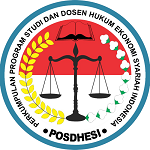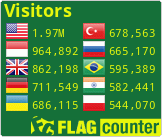Productive Zakat and Economic Empowerment: Impact on Mustahiq Income at Darul Ilmi Islamic School
DOI:
https://doi.org/10.32332/muamalah.v3i1.8848Keywords:
Productive Zakat, Economic Empowerment, Mustahiq Income, Socio-economic ImpactAbstract
Despite its substantial zakat potential, economic inequality remains a significant challenge in Indonesia. This study examines the impact of productive zakat on the economic empowerment of mustahiq (zakat recipients) at the Modern Islamic Boarding School Darul Ilmi Indonesia. The research employs a mixed-method approach, combining quantitative income analysis before and after receiving zakat with qualitative insights from beneficiary interviews. The Wilcoxon signed-rank test results indicate a significant increase in mustahiq income post-zakat. This highlights the effectiveness of productive zakat in enhancing economic self-sufficiency. The study's novelty lies in its comprehensive evaluation of zakat's role in socio-economic upliftment within an Islamic educational context. These findings underscore the potential for replicating such models in similar institutions to mitigate economic disparities.
Downloads
References
Downloads
Published
Issue
Section
License
Copyright (c) 2024 Nurwahidin Nurwahidin, Dodik Gilang Islami, Ria Fauziah Salma, S. Salahudin Suyurno

This work is licensed under a Creative Commons Attribution-ShareAlike 4.0 International License.
All articles in the Mu'amalah: Jurnal Hukum Ekonomi Syariah can be disseminated on condition that they still include the identity of the article and the source (Mu'amalah). The publisher is not responsible for the contents of the article. The content of the article is the sole responsibility of the author.
Authors who publish this subject agree to the following terms:
First, the Authors retain copyright and grant the journal rights from the first publication with the work simultaneously licensed under a Creative Commons Attribution-ShareAlike 4.0 International License that allows others to share the work with an acknowledgement of the work's authorship and initial publication in this journal.
Secondly, the authors can enter into a separate or an acknowledgement of its initial (e.g., post-institutional repository or publish it in a book) publication in this journal.
![]()
Third, the authors are permitted and encouraged to post their work online (e.g., in institutional repositories or on their website) before publishing work is cited.








